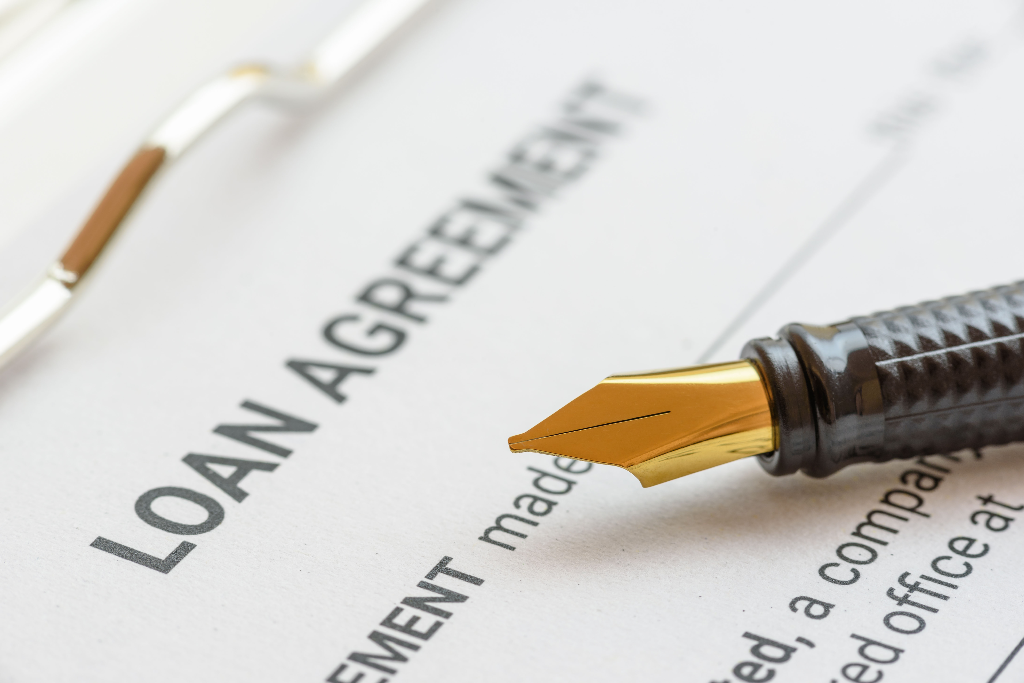Essential Things to Know About Secured Loans

- A secured loan is a type of loan offered by banks, credit unions, and online lenders where a person has to put up some kind of collateral to attain the funds needed.
- The most common secured loans are mortgages, business, and car loans.
- Below is a list of the advantages and disadvantages of secured loans, which are important to consider before deciding whether a secured loan is the right choice.
One fundamental way people build their credit score over time is by taking out loans to make major purchases. When trying to get a loan, some types have varying characteristics, and one of the most common types used today is secured loans.
Definition of Secured Loans
A secured loan is a type of loan offered by banks, credit unions, and online lenders where a person has to put up some type of collateral to attain the funds needed.
Collateral is an asset that a person puts up when trying to receive a secured loan. For example, when a person cannot repay the loan and has trouble paying the monthly payments, the lender will place a lien on the collateral. A lien means the lender can legally retain the collateral and sell it to receive compensation and erase the borrower's debt.
A common example of collateral is homes when applying for a mortgage. When getting the initial secured loan from the bank, the house will be put up as collateral if the borrower has trouble paying the loan payments. If this incident occurs, the financial institution which lent the money could retain ownership of the house and sell it off to settle the borrower's outstanding debt.

Image Credit: William Potter / Shutterstock.com
Secured Loans vs. Unsecured Loans
The two common types of loans are unsecured and secured, and they have differences, but below are two of them which set them apart.
Loan Structure
One of the main differences between secured and unsecured loans is their structure. A secured loan will require the borrower to put up an asset as collateral in case an incident occurs, which would prevent them from being able to pay off their debt. This collateral helps mitigate the risk taken on by the lender, allowing them to offer this loan to more people at a lower interest rate.
However, an unsecured loan does not provide this option, so when an applicant applies for this type of loan, there is no assurance that they will be able to pay off the loan in full. Therefore, unsecured loans are only given out to those with good credit history to minimize the chances of an applicant defaulting on their loan. In addition, they typically have a higher interest rate than secured loans.
Preferred Credit Score
Under a secured loan, a credit score is not as vital as it is under an unsecured loan. In addition, as the secured loan has collateral, the lender can take on the higher risk because if the borrower defaults, they can still make back a portion of their money. As a result, this feature of a secured loan allows the lender to give out loan offers to those with lower credit scores.
On the other hand, as unsecured loans do not ask for collateral, they are taking on more risk when issuing loans to those with lower credit scores, and it cannot be mitigated. Consequently, unsecured loans typically approve applicants with higher credit scores and good credit histories.
Examples of Secured Loans

Image Credit: William Potter / Shutterstock.com
Mortgage
As mentioned above, a mortgage is one of the most common secured loans. First, the financial institution will look at the potential borrower’s credit history and credit score to determine whether the borrower is reliable enough to borrow money. Then, if the lender believes the borrower can oblige to the loan terms and conditions, they will give them the money they need.
Also, the house is put up as collateral to mitigate the risk. So, if the borrower cannot pay off the loan, the home would become part of the bank’s assets, and they will most likely list it on the housing market to remove the lender's debt.
Business
When a business wants to expand, one of the ways they receive funding is through loans. Specifically, if a company gets a secured loan to fund its expansion, it must put an asset up as collateral in case they go bankrupt. In this scenario, the collateral put up by the borrower could range from the inventory purchased to the buildings/land acquired.
Similar to mortgages, if the business cannot fulfill its secured loan requirements, the bank will receive access to the collateral listed by the borrower to help offset their debt.
Auto
Like a mortgage, the car will be used as collateral when applying for a car loan. In a situation where the borrower cannot meet the lender’s demands, the lender can place a lien on the car the borrower had purchased. Once retaining ownership of the car, the lender has complete control over the automobile; two outcomes can occur, either the lender will sell it directly or auction it.
Once the car is out of the lender's possession, any proceeds earned from the sale of the vehicle will be deducted from the outstanding balance owed. From there, any costs associated with the repossession of the vehicle will be added to the remaining balance that needs to be paid.
Benefits of Secured Loans
It can be difficult to determine which type of loan is ideal for one’s financial situation; so below is a list of benefits that occur from receiving a secured loan.

Image Credit: Freedomz / Shutterstock.com
Lower Interest Rates
One of the main benefits of having a secured loan instead of an unsecured loan is that the interest rate is lower for a secured personal loan. In addition, as secured loans allow the borrower to put their asset as collateral, there is less risk being taken on by the lender, meaning they are okay with offering a lower rate in the repayment terms.
Don’t Need Perfect Credit
As mentioned earlier, since an asset is being put up as collateral, there is less risk for the lender as if the borrower defaults on their loan, they have an asset that can help offset their losses. Consequently, people who do not have the best credit can still apply and potentially get accepted for this type of loan.
Disadvantages of Secured Loans
Possible Asset Repossession
If there comes a time when a lender is unable to pay their debts accordingly, the lender can place a lien on the asset listed as collateral in their loan agreement. If the borrower decides to proceed with this course of action, the borrower must legally hand over the collateral to the lender.
Possibility of Credit Score Lowering
As with any other debt obligations, when the borrower cannot repay the loan in regular installments, it will result in a bad credit score over time, and a secured loan is no exception. In addition, when the credit score lowers, it becomes difficult to get access to other types of loans, such as business loans or mortgages.
Therefore, regardless of the type of loan you are looking for, it is important to make sure that the monthly payments are affordable. If the repayment plan is one where it is difficult to pay the amount back in equal installments, then either try to extend the repayment period or look at alternative financing options.
The Money Wrap-Up
It is crucial to compare different loan options and see what lenders offer. Researching and comparing other options will allow you to make the most informed decision. If you do not research, it becomes challenging to make an informed decision, and it could lead to paying extra money each month.
Disclaimer: The mentioned remarks regarding secured loans should not be considered financial advice. Should you make any financial decisions, consult with a financial advisor first. CapWay is not liable for any financial setbacks caused by the above information.
Main Image Credit: Watchara Ritjan / Shutterstock.com